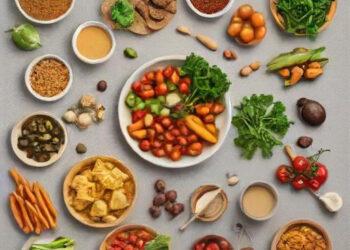-Tanuj Nayyar
India is counted to be the 8th largest tourism economy in the world and hotels are an important component of the tourism product as they contribute to the overall tourism experience through the standards of facilities and services offered by them. Before the virus hit, the restaurant industry was expanding massively with new places opening faster in many cities than diners could keep up with. It’s still too early to say what the post-COVID-19 scene is going to look like but the nationwide lockdown has halted all kinds of business activities around the globe. COVID-19 is adversely impacting the hospitality businesses across the globe. The food industry will have to go in for some major modifications in the future.
 This virus has impacted a lot of lives and the way of living for several. People have started believing that switching to vegetarian food can help one from getting hit by the virus. But there is no evidence that the choice of food will make any difference in the spread of the virus. More focus will be on a vegetarian diet, fresh seasonal vegetables, and fruits. Anti-oxidant ingredients will also play a major role. People will now switch to domestic consumption that picking imported ingredients. People especially youngsters these days have already accepted Ayurveda as a remedy to major health and skin issues. We see young people using raw ingredients like turmeric, ginger, citrus fruits as a part of their daily diet. With
This virus has impacted a lot of lives and the way of living for several. People have started believing that switching to vegetarian food can help one from getting hit by the virus. But there is no evidence that the choice of food will make any difference in the spread of the virus. More focus will be on a vegetarian diet, fresh seasonal vegetables, and fruits. Anti-oxidant ingredients will also play a major role. People will now switch to domestic consumption that picking imported ingredients. People especially youngsters these days have already accepted Ayurveda as a remedy to major health and skin issues. We see young people using raw ingredients like turmeric, ginger, citrus fruits as a part of their daily diet. With
rising health issues people are now much more concerned about following a proper routine diet.
Taking a look at the other side of it, the restaurants and hotels with ages have proved to be an important component of our lives. Whether on special occasions or any normal day, going to such spots makes our brain and heart joyous and relaxed. So, somehow it becomes important for these service providers to prioritize their customer’s health. For that, the menus of the restaurants have to be designed where usage of healthy ingredients should be incorporated in the dishes. Also, they should maintain transparency between their service and customers in order to build their trust over what they are serving is the best one can get.
People have diverse preferences over what to eat and what not to. Especially for the ones who are highly health-conscious, it becomes important to make a separate section based on immunity building dishes so that it can give customers confidence in eating it. With changing eating habits of people it is becoming essential for the restaurants and their servicing practices that they should get transformed with time. Vegetarianism might be the next big take in the coming few months as people are a bit paranoid about consuming something exposed to the environment. Though food is definitely not the source of transmission of this virus, well-cooked meat or chicken is never a problem and one can always maintain cleanliness and hygiene in their kitchen.
One major reason for one to avoid the consumption of nonvegetarian food is also the slowdown in our lives. The real-life activities are negligible and as we all are well aware that consuming meat or seafood or chicken is surely rich in protein but takes time indigestion. High levels of meat consumption are increasingly being criticized for ethical, environmental, and social reasons. Plant-based meat substitutes have been identified as healthy sources of protein that, in comparison to meat, offer a number of social, environmental, and health benefits and may play a role in reducing meat consumption. However, the perceived health, social and environmental concerns associated with high levels of meat consumption have stimulated calls to reduce the quantity of meat we eat and created an on-going global debate. Imbalanced diets, such as diets low in fruits and vegetables and high in red and processed meat, are responsible for the greatest health burden globally. This pandemic situation has created awareness globally and the novel virus has impacted every individual in some or the other way. Like it’s always said a disaster comes with slow yet impactful outcomes, this virus is an eye-opener to every individual. Cutting down on meat consumption will help in reducing greenhouse gases and their harmful impact on the environment.
Also, the food system is responsible for more than a quarter of all greenhouse gas emissions, and therefore a major driver of climate change. People now being more responsible towards the environment, will shift to vegetarianism in
order to make the environment a better place to live in.
(The author is the Executive Chef of Jaypee Residency Manor, Mussoorie. Views expressed are his own and not that of the publication)







